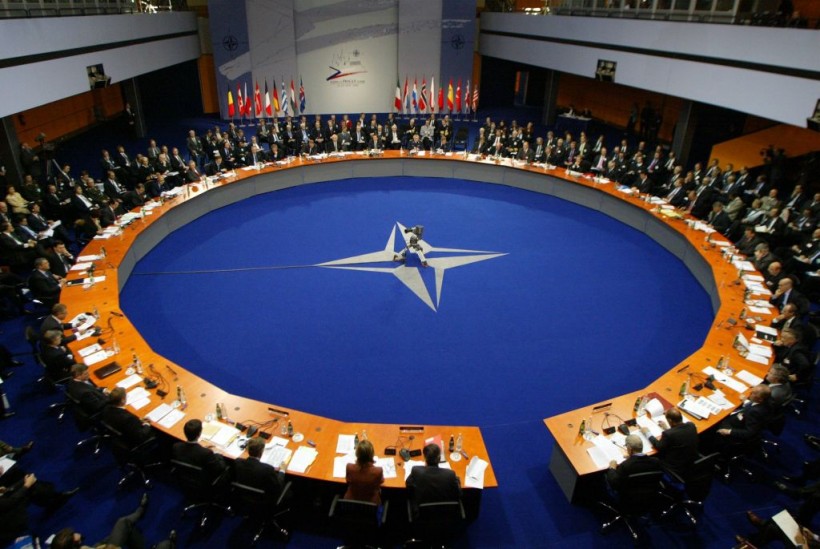
(Photo : GERARD CERLES/AFP via Getty Images)
Since a brief Russian mutiny in June, Russia-linked Wagner group mercenaries have been deployed in Belarus, worrying NATO allies on the alliance's eastern border.
NATO member states located along the alliance's eastern front, such as Poland, Lithuania, and Latvia, are observing an increase in border security due to rising concerns regarding the activities of Wagner Group mercenaries in neighboring Belarus.
The situation has escalated further with Belarusian President Alexander Lukashenko reportedly providing sanctuary to the Wagner fighters after their failed uprising in Russia, Dailymail reported.
NATO Boosts Defenses Against Wagner Group in Belarus
This move has led to training sessions for Minsk's forces in military field camps, causing heightened security risks for NATO nations in close proximity to Belarus. In response, these countries are deploying additional troops and equipment to safeguard their borders.
However, there are differing views on the severity of the threat and potential political motivations behind the security measures. The Wagner Group's Presence in Belarus: The Wagner Group, a private military company with ties to the Russian government, has been a cause for concern in various parts of the world, having been involved in conflicts in Ukraine and Africa.
Now, the presence of these mercenaries in Belarus, under the alleged protection of President Lukashenko, has raised alarm bells among neighboring NATO countries. Wagner fighters have reportedly been training Belarusian forces, adding to the security challenges faced by the region.
Poland, Lithuania, and Latvia had already been on high alert due to a large influx of migrants and refugees arriving at their borders from Belarus in the past two years. These NATO and EU members have accused Alexander Lukashenko of using this migration route as a tool of "hybrid warfare" to create instability in the West.
The involvement of the Wagner Group in Belarus further compounds the security concerns for these nations. NATO's Response and Troop Deployments: Poland's Prime Minister, Mateusz Morawiecki, has expressed his concern about the Wagner Group's proximity to the strategically sensitive Suwalki Gap, stating that it could potentially lead to a hybrid attack on Polish territory, acording to CNN.
Read Also: Experts Say Detainees in Russian-Occupied Southern Ukraine Were Tortured, Sexually Assaulted
NATO Monitors the Eastern Front
In response to the perceived threats, Poland, Lithuania, and Latvia have increased the deployment of troops and equipment to their borders to bolster their defenses.
Latvia's State Border Guard head, Guntis Pujats, highlighted the elevated security risks near the Belarus border due to the Wagner Group's presence and its use of migrants as a tool for "hybrid warfare." As a measure to counter these risks, border guards have initiated special task force training.
Differing Views and Political Implications: While some experts suggest that the current combat power of the Wagner mercenaries in Belarus does not pose a conventional military threat, they acknowledge that future scenarios and their armament will play a crucial role in determining the level of risk.
In Poland, some critics accuse the government of overstating the threat to gain political advantage in the upcoming parliamentary elections. The ruling party's opponents argue that the government is using the Wagner Group to stoke fear and project a tough stance on security. However, the authorities have denied these claims.
As tensions mount along NATO's eastern borders due to the presence of Wagner Group mercenaries in Belarus, Poland, Lithuania, and Latvia are taking active measures to safeguard their territories. The situation has raised international concerns, with the United States viewing the Wagner Group as a threat linked to the Russian government.
The coming months will be crucial in determining the stability of the region and the response of NATO nations to counter the potential risks posed by the Wagner Group's presence in Belarus, as per SF Gate.
Related Article: Russia's Recruitment Centers Targeted in New Attacks, Multiple Reports Say









